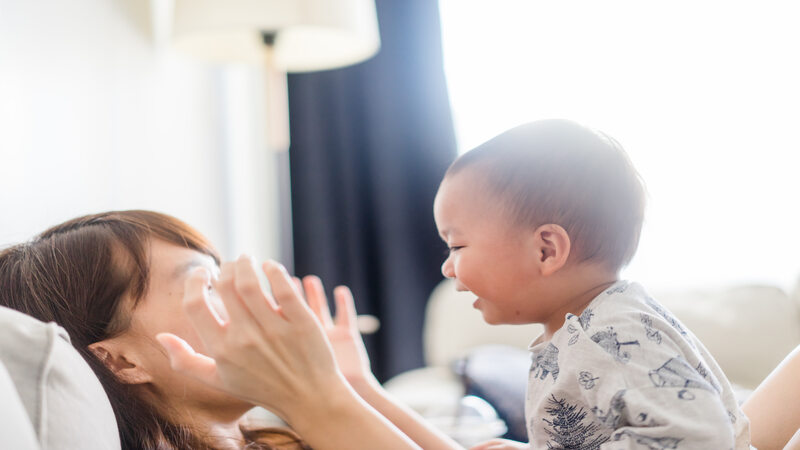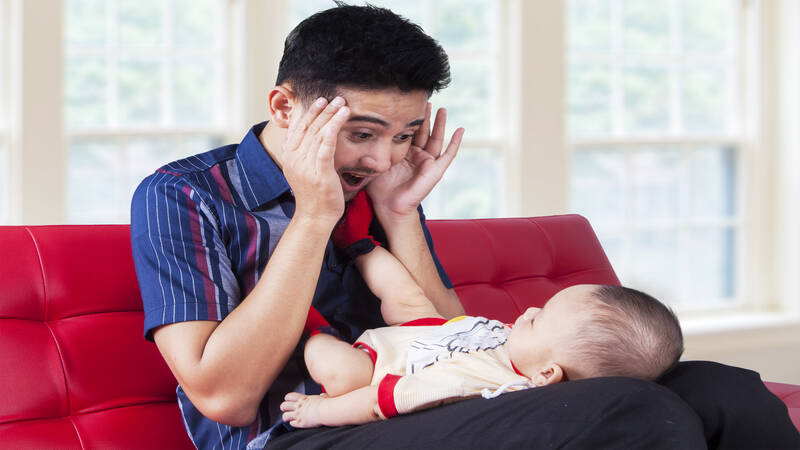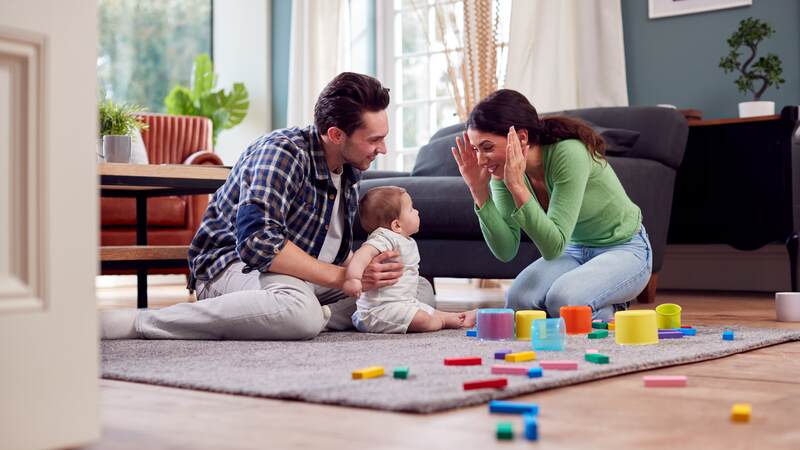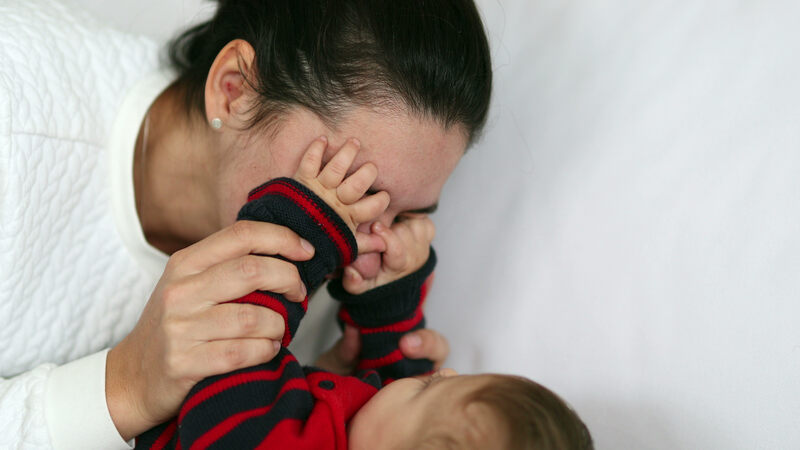
Have you ever tried to play peek-a-boo with your baby or any other baby? Have you noticed how much they enjoy the game and how their faces light up when they see your face behind your hands? Babies enjoy this simple game. Almost all babies play this game at some point. But as entertaining as this game is, it is also a vital activity for their growth and development.
The peek-a-boo game improves as your child grows and understands what is exactly happening. As your baby’s brain develops and understands how the game is being played, the game also develops and improves. Read on to know why this simple game is so important for babies during their developmental years.
In This Article
- Why Is Peek-A-Boo Good For Babies?
- When Should a Baby Start Playing Peek-A-Boo?
- What Are The Rules of Peek-A-Boo?
- How Should a Baby Respond to Peek-A-Boo?
- Peek-A-Boo Developmental Milestones
- How Does Peek-A-Boo Help Social Development?
- FAQ’s
Why Is Peek-A-Boo Good For Babies?
When your baby plays and understands the game peek-a-boo, they learn about object permanence. If you have noticed, your baby will start crying the minute they can’t see their primary caregiver’s face. This is because they think the person is gone and starts crying for them. Even if the person is in the room, the baby will cry until they can “see” them.
By playing peek-a-boo, your baby will understand objects or people remain even if they can’t see them. They learn to “search” for the object or person. It improves their visual tracking skills and keeps them engaged cognitively.
When Should a Baby Start Playing Peek-A-Boo?

There is no right age to start playing this fun game. Some babies will understand and start enjoying this game as early as 3 months old. Some babies can take more time to comprehend what you are trying to achieve with the game.
At around 9-12 months, your baby will understand the concept of the game and show interest in playing it. They will even start playing it on their own.
What Are The Rules of Peek-A-Boo?
There are no fixed rules. You just need to hide your face behind your hands or something small at first. Since your baby can’t move much, you must stay within their reach and encourage them to find your face. Once your baby starts moving, you can go a little further and hide behind objects.
How Should a Baby Respond to Peek-A-Boo?
Initially, a baby might get frightened at seeing your face disappear and appear suddenly. They can even cry at this stage. Over time, with repeated exposure to the game, they should start understanding and responding to the game. Your baby should enjoy finding your face. They should reach out to pull your hands away from your or their face.
Peek-A-Boo Developmental Milestones

As you play peek-a-boo with your baby, you are bound to notice the following developments in them.
1. Realization of Your Presence
The game teaches them you are present even if they can’t see your face. They learn to realize the presence of things that they can’t see.
2. Differentiating
Babies take time to differentiate themselves from you or others. The game helps them slowly grasp the fact that they are an individual and the “baby” is different from the parents.
3. Identifying Self And Others
As you hide your face and make your child find you, you are teaching them identification. They also learn to identify themselves if they were to play this in front of a mirror.
4. Making Distance Less Frightening
When you move away from your baby and hide in places, your baby slowly understands and accepts the distance between you and them. They learn to trust you will be around even if they can’t see you.
How Does Peek-A-Boo Help Social Development?

Peek-a-boo is an interactive game that your baby can play with anyone. When your baby learns to respond to the game, enjoy and laugh, they are developing their socializing skills. Playing a game is a fun way to make them comfortable with strangers or unknown faces. It reduces the anxiety a baby might experience when they see new faces or when in a crowd.
Peek-a-boo is a fun way to not only engage your baby but to help them develop important skills too. Playing this game can rule out multiple issues related to cognitive development, eyesight, hearing, and socializing. It is fun, inexpensive and a very convenient game to play at all times.
FAQ’s
1. When Should I Start Playing Peek-a-Boo With My Baby?
You can start playing peek-a-boo from the time your baby is born. As babies grow and start understanding the concept of object permanence, you can increase the complexity of the peek-a-boo games.
2. If My Baby Does Not Play Peek-a-Boo, Is It a Developmental Delay?
Every baby is different. If your baby shows no interest or does not respond at all, even when they are 8 or 9 months old, you can consult your doctor at the next visit.
3. Does Playing Peek-a-Boo Make Babies Feel More Secure?
Yes, as your baby understands object permanence, their insecurities reduce. They will feel secure even if they can’t see you.
